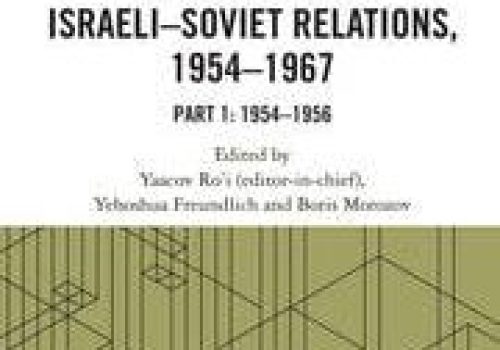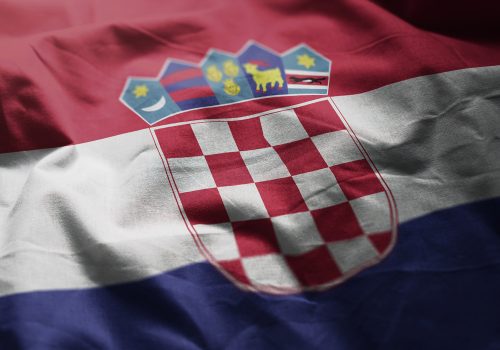
[vc_row][vc_column][vc_column_text]
One of the reasons why most other nations don’t understand us is the fact that our national character is multi-faceted. They always see only one side, one facet and think that this is all there is. They are stunned, disappointed or at least just surprized to discover that our character also contains other sides. Nevertheless, there are two main powers that influence us and are of major importance for understanding the essence of our nature. One most clearly expressed power is our amazing ability to change, adapt, and become similar to the people amongst whom we live.
I would say that to a certain extent, it includes the purely external, biological side of our appearance. We can track it down even on the members of the same family. Many of us have relatives in different parts of the world. When all cousins gather for a family celebration – what do we see? Cousin Michael looks like a typical American, cousin Alex is a typical Israeli, and cousin Sophie and her kids are typical Belorussians. How come their parents could be brothers and sisters?
But this is not the most significant aspect of the matter. The true ability to adapt manifests itself on a much deeper level, and it is connected to our capacity to absorb the culture that surrounds us. To understand it better, let us address a phenomenon, which is commonly called ‘levantism’. A person of a Levantine type can also quickly and easily change, grasp new languages, adopt the manner of dressing and behavior. However, it is only an external imitation and mimicry, which doesn’t involve the essence.
Our adaptation happens on a completely different level, which involves internal transformation. We are not just ‘apeing’ others, but become an integral part of another nation. Moreover, after some time, sometimes a very short one, we manage to understand this nation better than it understands itself.
This phenomenon doesn’t necessarily mean that Jews are so much loved in the countries they are settled, or even become a part of the surrounding culture. Instead, it causes resentment and indignation.
Other people get the impression that the Jews not only enslave them economically but also ‘steal’ their souls. We become nationally recognized poets, playwrights, and artists of the other nations. We are more British than the British, more German than the German, more Russian than the Russian. There are multiple anecdotes about this, but in fact, we can be compared to an actor who doesn’t just play his role but transforms on the stage into a character he’s playing. If the actor is talented, the image he creates is somehow more realistic than the actual nature of the character, as the actor emphasizes the most typical details and the most striking individual traits. When the Jews try to play a role, they do it not as mediocre performers or miserable comedians, but as great tragic actors.
Imitating the other nations amongst whom they live, the Jews reflect the national type rather than its individual representatives. The question that arises is: how do we manage to do it? Massive pressure on us, initially a small and weak nation, has always meant the same: we need to either adapt or die. Those who couldn’t adjust – indeed perished. Those who had the talent to imitate the surrounders – survived. It is one of great aspects of our national “makeup”.
But here is another, not less important, side of us. There is an imperious call in our souls. It demands of us something opposite of adaptation and mimicry. This call is our desire for self-knowledge. In other words, there are some aspects of our ‘ego’ that we cannot get rid of, despite multiple attempts to do this throughout Jewish history. Sometimes after one, two or three generations assimilate, an ancient sprout breaks through as if there was no assimilation. It is exactly the feature that other people notice in the Jews since the beginning of our existence: we are the most stubborn nation in the world. We are a nation that cannot be brought to its knees. We can be torn into pieces, but those pieces, thanks to their inner power, will reunite again into a living whole.
It seems like an obvious contradiction. However, if we study this problem closer, we will see that these two characteristics of our nation are contradictory only externally. An ability to adapt per se would have meant that we should have had dissolved among other nations. Within a hundred years we would have disappeared having become like them. Those of us who really wanted it have become a part of other nations, if not themselves then at least in their offsprings. But only those have survived, not as individuals, but as a nation, who had an extra skill that gives a special meaning to our ability to adapt and change. This skill is to preserve memory and knowledge about something special that we carry within us, and about the fact that Jews are different from other nations. We are more flexible, more adaptable than others, but at the same time, we are harder than steel. This is the real secret of being able to survive and preserve ourselves throughout two millennia.
But let us return to our “actor”. He is experienced, successful and has mastered his skill to its perfection. Sitting in his dressing room, he removes his makeup. What does he see in the mirror? He’s been acting so well that he’s forgotten how he looks without it. A question emerges: “Who are you?” A Jew may find a satisfactory answer only by making a conscious effort to stop playing others’ roles. To attain this, we have to do everything possible to find out who we are on the inside, what image lives in our hearts, and how it should develop.
[/vc_column_text][/vc_column][/vc_row]



